Un elemento clave de cualquier proceso constitucional incluye la identificación del órgano u órganos responsables. Esta página de menú presenta una visión general de los aspectos básicos que deben considerarse al identificar el órgano u órganos de elaboración constitucional (OEC) que estarán encargados de liderar el proceso de revisión y redacción/enmienda de la constitución. Además, se complementa con enlaces a páginas más detalladas que describen los OEC más comúnmente utilizados.
Manual Introductorio
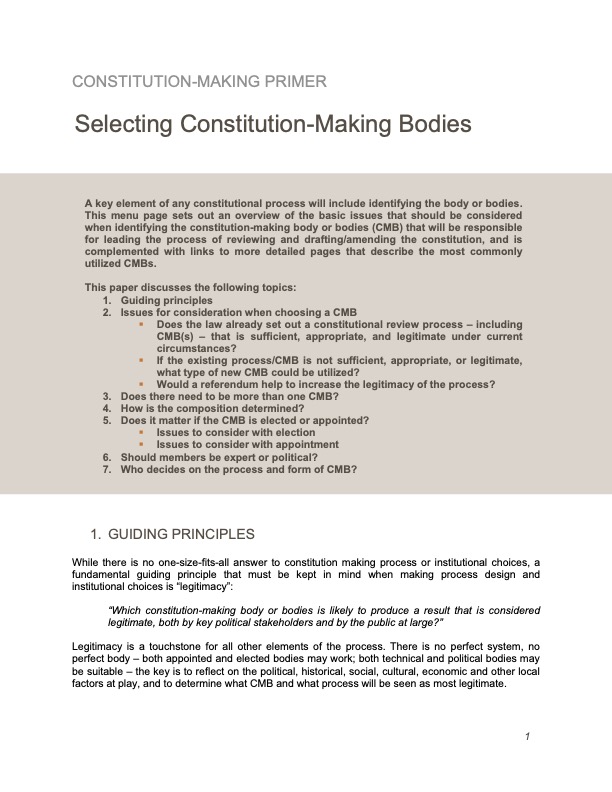
Lecturas Adicionales
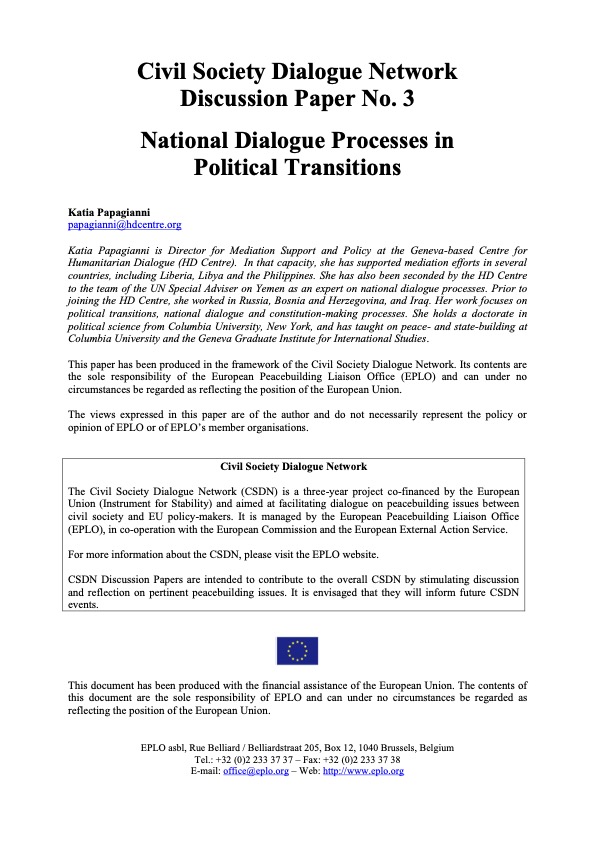
This paper from the Civil Society Dialogue Network provides an overview of national dialogue processes, in particular national conferences, intended to expand participation in political transitions beyond the political and military elites. It considers the tensions inherent in designing these processes and examines the approaches of different countries to preparing and executing the dialogues.
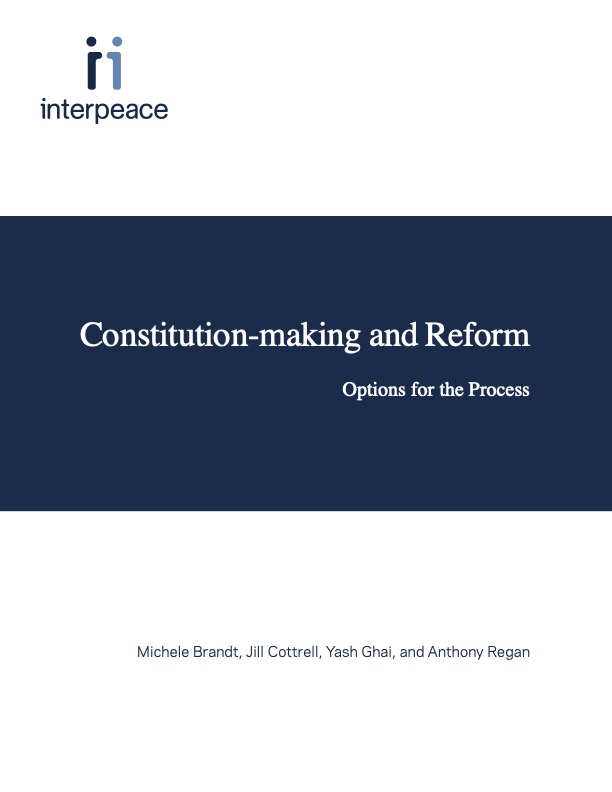
This is a comprehensive guide to constitution-making and reform. The book identifies the tasks that need to be carried out, the procedures that can be used, and who can do them. It is intended for a wide audience and to be a guide for anyone who is engaged in a constitution-making process, or who is interested in improving constitution-making practice. It includes a discussion on the following topics: Emerging guiding principles, Impacts of Adherence to Guiding Principles, The Role of a Constitution Issues of Process Key Components and Issues of the Constitution-Making Process Tasks and Responsibilities in Constitution-Making Assessing the Impact of Constitution-Making Who Does What in the Process Starting the Process Public Participation Administering and Managing the Process and its Resources The Agenda of Constitutional Issues and Generating Ideas on the Issues Debating and Deciding the Issues The Constitutional Text: Coherence and Drafting Adopting and Implementing the Constitution Institutions with Multiple Roles Institutions that Develop Proposals about which Final Decisions are Made Elsewhere Administrative Management Bodies Specialist or Technical Input Institutions Referendums and Plebiscites Civil society and the media and Guidance for the International Community.
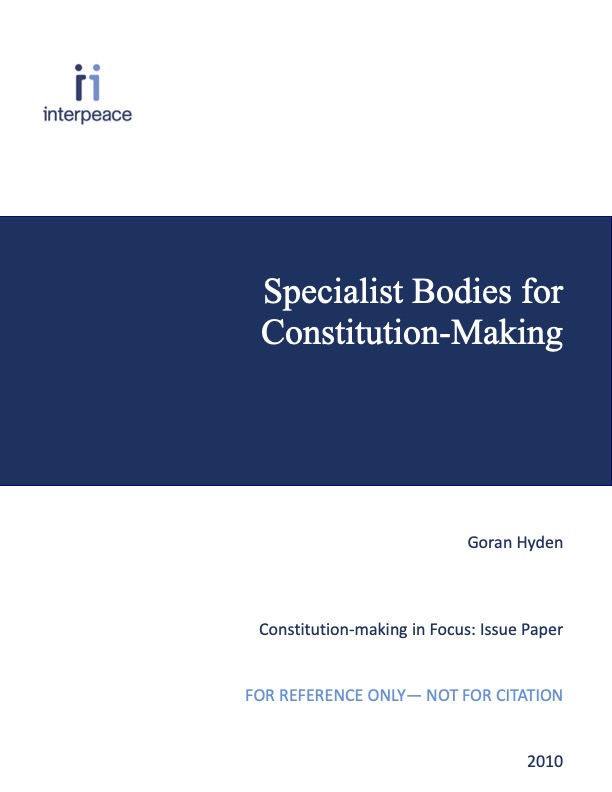
This IDEA publication examines how different constitution making bodies (special forums, committees or commissions, and assemblies - appointed and/or elected) have been utilized in Eastern Europe, Latin America, and Africa. The publication begins with a mapping exercise drawing on cases from three regions and showing what these specialist bodies are, what functions they have, and what their basic rationale is. It continues by looking at the challenges and problems that are associated with the use of these bodies. The conclusion provides a overall assessment of the usefulness of specialist bodies
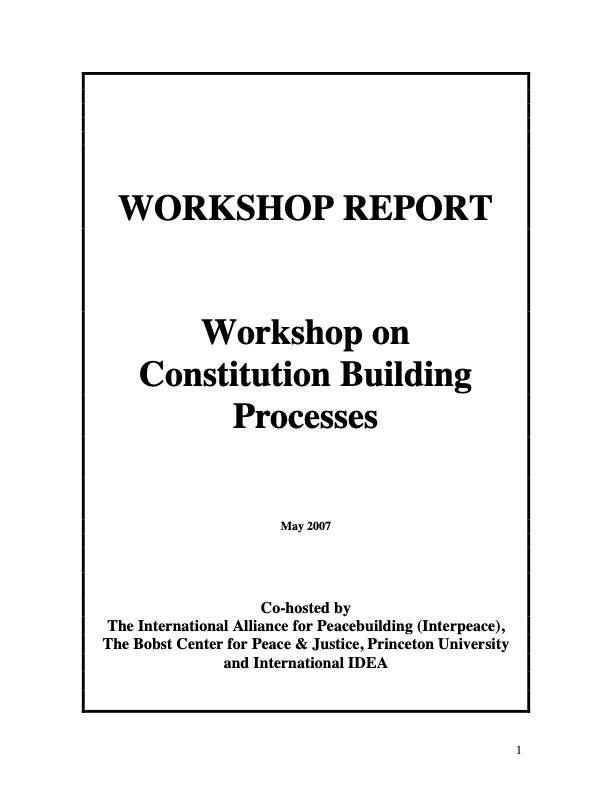
This report arises from a 2007 workshop on constitution building processes held by Interpeace, IDEA, and Princeton University. The report considers lessons learned about how to build constitutions that perform well with respect to important outcomes such as settlement of differences, continuing dialogue, and generating accountable government.
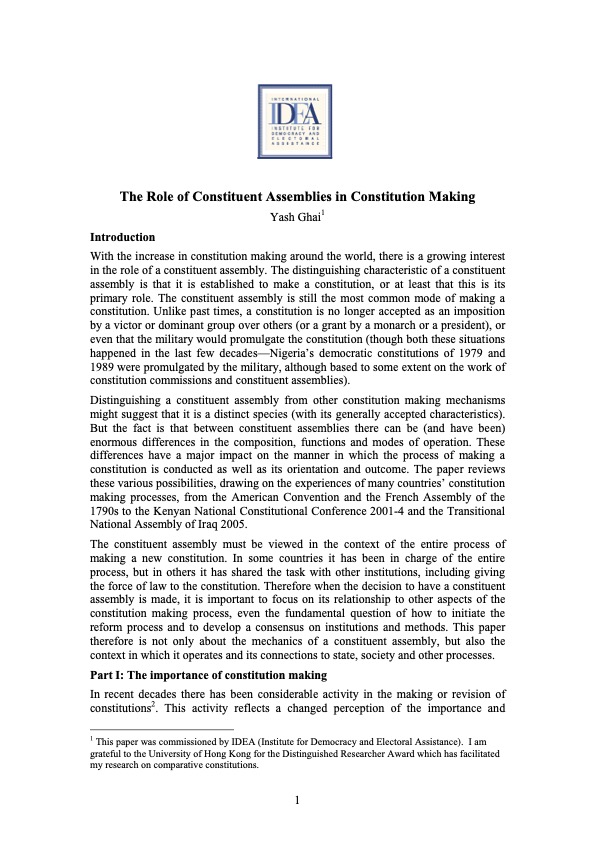
This paper examines characteristics of constituent assemblies as distinct from other constitution-making mechanisms, and also variation within such assemblies with respect to, for example, composition, functions, and modes of operation. The paper also briefly discusses the aftermath of a constituent assembly, in particular referendums and implementation.
